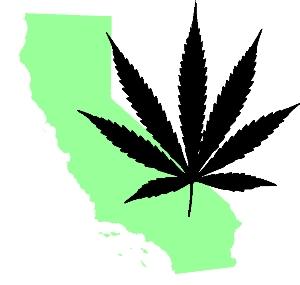Drug War Issues
Politics & Advocacy
Californians overwhelmingly support medical marijuana, especially for "patients with terminal and debilitating conditions," but when it comes to legalizing it, a new poll finds the state has a ways to go. According to the USC Dornsife/Los Angeles Times poll, only 46% of respondents favored legalization, with 50% opposed.

On marijuana legalization, the poll asked "Do you think marijuana should be legalized for recreational or general use by adults?" One-third (33%) strongly supported legalization, while another 13% supported it. Strong opposition to legalization was at 42%, with soft opposition at 8%, while the remaining 4% either had no opinion or refused to answer.
Looking at the poll's cross tabs provides a more detailed breakdown of where support for legalization is strong and where it isn't. The cross tabs show majority support for legalization among independents (56%) and Democrats (51%), but not Republicans (28%). Among ethnic groups, half of blacks (50%) support legalization, and 49% of whites, but only 37% of Hispanics. Among people with kids, only 47% support legalization, but that's one point higher than people without kids (46%).
Support for legalization correlates with income. Among people making $50,000 a year or more, support was at 54%, while among people making less than that, support was only at 40%.
The only region of the state with majority support for legalization was the San Francisco Bay area, with 55%, followed by Los Angeles County (49%), Sacramento and Northern California (46%), the Central Coast (42%), Southern California outside of LA County (41%), and the Central Valley (34%).
The gender gap evident in other marijuana polls also shows up in this one. While 51% of men favored legalization, only 41% of women did.
With no legalization initiatives making the ballot this year, California activists have at least two years to work on upping the numbers. It looks like they better be prepared to do a lot of talking to Hispanic women with kids and low-paying jobs.
This work by StoptheDrugWar.org is licensed under Creative Commons Attribution-ShareAlike 4.0 International
Comments
Highly Doubtful
This was a Los Angeles Times/University of Southern California poll. Their October, 2010 poll of California voters found 39% support for Proposition 19, yet less than a month later 46.5% of the electorate voted to end marijuana prohibition.
In reply to Highly Doubtful by Anh Hung Can Sa (not verified)
Squealing Like a Stuck Pig
Thank you. That is an excellent analysis and point. It's clear the rabidly prohibitionist LA Times has their thumb on the scales.
It's ludicrous to think Californians will regress back to the Neanderthal oppression. There will be many such twistings and writhings of the marijuana prohibition beast in its death throes.
Highly Doubtful
This was a Los Angeles Times/University of Southern California poll. Their October, 2010 poll of California voters found 39% support for Proposition 19, yet less than a month later 46.5% of the electorate voted to end marijuana prohibition.
Boycott the economy until marijuana is legalized
Our republic isn't supposed to let the tyranny of the majority stomp on the rights of the minority.
I suggest bringing the economy down by not buying anything not absolutely necessary until marijuana is legalized.
Agree with @Anh Hung, things don't look so bad
Jose4, concentrate your boycott especially among "industries" or products which have a vested interest in prohibition such as $igarettes and alcohol (which also advertise most heavily in publications read by low-income individuals).
Add new comment